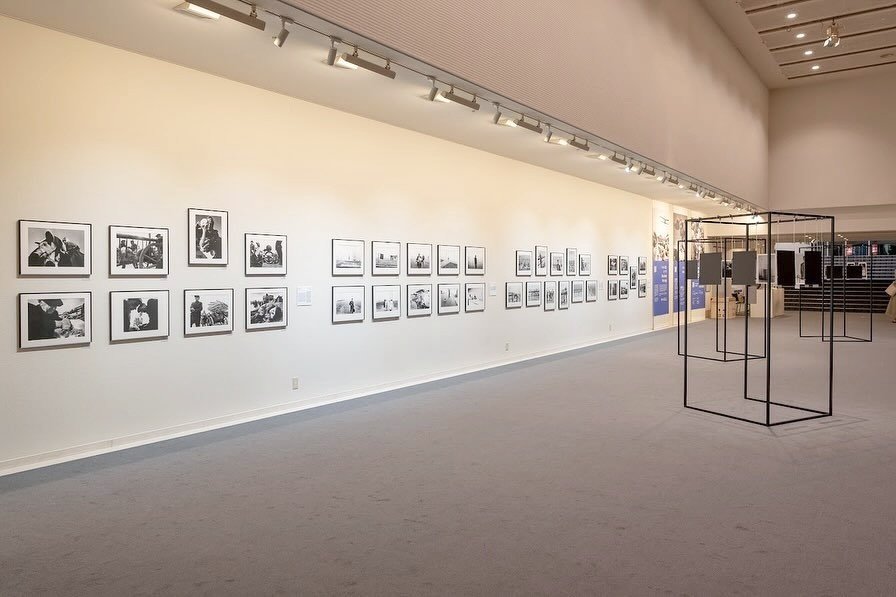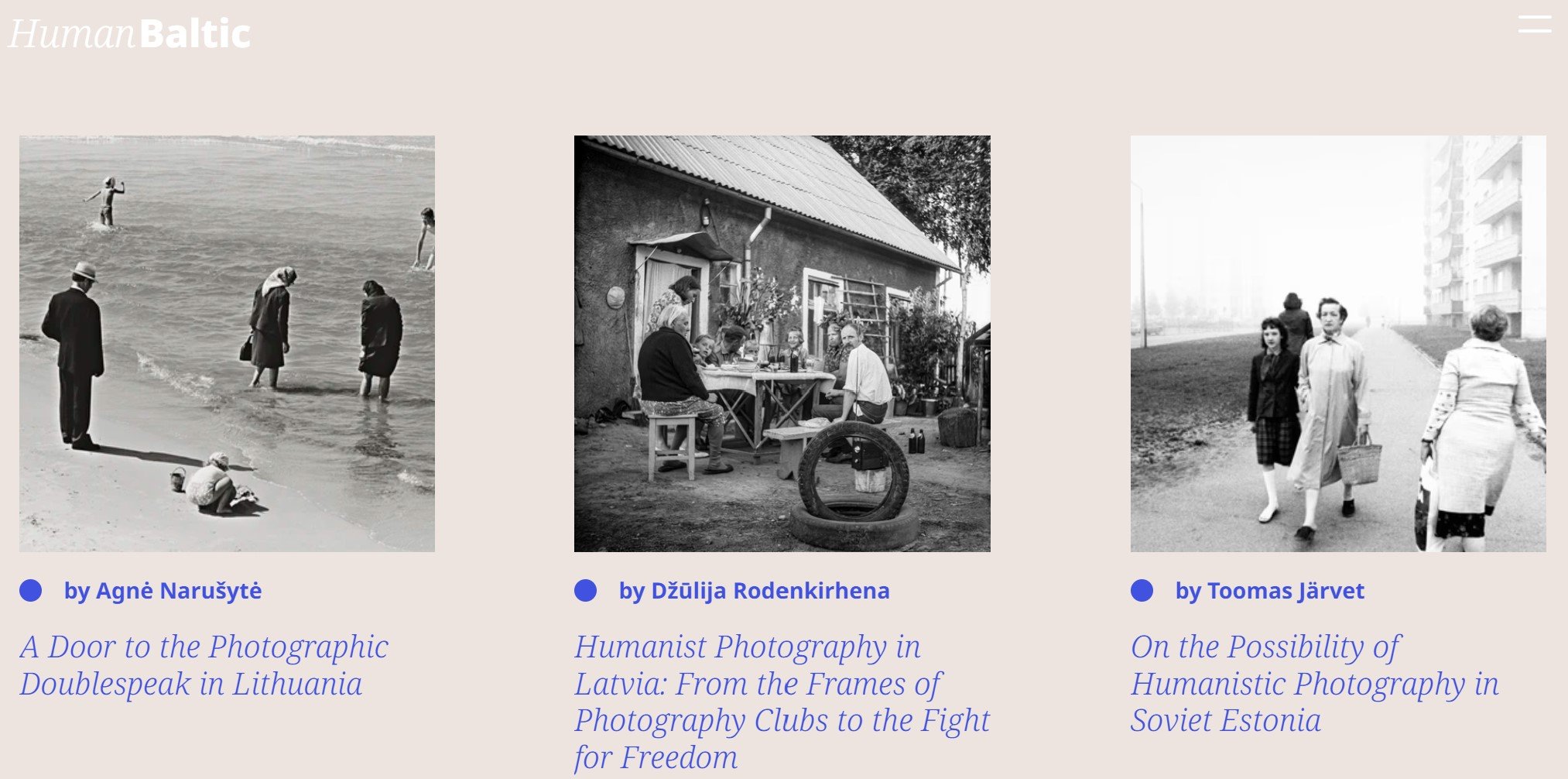Zenta Dzividzinska’s photographs featured in the exhibition “Human Baltic” in the Spiral Garden Gallery, Tokyo
A selection of photographs by Zenta Dzividzinska from the 1960s were included in the Baltic humanist photography exhibition titled “Human Baltic,” on view from May 27 to June 9, 2024, in the Spiral Garden Gallery in Tokyo.
The chief curator of the exhibition was Dr. Agnė Narušytė. The Latvian participation in this exhibition was curated by photographer Iveta Gabaliņa and organized by ISSP.
Zenta Dzividzinska, Untitled, from the series House by the River, 1967.
The exhibition was the “First-ever joint Baltic art project in Japan. It presents more than 200 photographs by 17 authors of the golden age humanist photography of 1960-1990 and The Baltic Way in one of the most prestigious galleries of Tokyo - Spiral Garden.”
“The exhibition presents a collection of humanistic photography from Latvia, Lithuania, and Estonia treasure trove - from the 1960s to the 1990s. The collection is united by a humanistic approach: photographers capturing everyday life, sometimes mundane, other times romanticized. At the same time, the selection reflects a struggle for freedom of expression, identity, and memory that was characteristic of photography in the Baltic States at those times.” [find out more at https://humanbaltic.com/about]
The poster to the right features an untitled photograph by Zenta Dzividzinska from the series The House by the River.
Zenta Dzividzinska, Untitled, from the series House by the River, late 1960s-early 1970s.
Installation shot with Zenta Dzividzinska’s photographs.
Installation shot with Zenta Dzividzinska’s photographs.
This is how the exhibition organizers define “humanist photography”: “The humanist photography movement, born from the aftermath of World War II, highlights the importance of individual humanity over war's anonymous horrors, aiming to foster peace. Baltic humanist photographers, working under severe state censorship and a backdrop of hostility to their global perspective, employed visual metaphors, hidden messages, and "Aesopian language" to navigate and challenge these constraints. The exhibition focuses on the importance of everyday human life, freedom of expression and social responsibility of art. With the spread of fake news and the ongoing war in Ukraine, these topics are relevant and resonating with audiences.” [find out more at https://humanbaltic.com/about]
The exhibition has a dedicated website: in English https://humanbaltic.com/ and Japanese https://humanbaltic.com/ja/
Among many other things, the website features specially commissioned essays. According to the organizers, they invite readers to “Explore the inspirations behind the lens, how the photography was a language of protest. Supported by Toshiba International Foundation and written by art curators and researchers, the essays investigate parallels of the Baltic and Japanese photography.” Read the essays here: https://humanbaltic.com/essays
The exhibition’s Facebook page offers additional information as well as a record of all the press reviews in Japan: https://www.facebook.com/humanbaltic
Moreover, plenty of images from the opening as well as a selection of works are available on the exhibition’s Instagram account: https://www.instagram.com/humanbaltic/
Exhibition programming included also a charity auction to benefit Ukrainian refugees. According to the organizers, “over 15 artworks by Baltic photographers were auctioned and 588.000 JPY collected and donated to Japanese charities working with Ukrainian refugees. This initiative not only highlighted the community's generosity but also showed how art can drive positive change and support important causes.”
Finally, the exhibition was accompanied by a catalog. Find out more about how to purchase a copy: https://humanbaltic.com/shop
Here’s a brief review of the exhibition in Latvian art magazine Arterritory: https://arterritory.com/en/visual_arts/topical_qa/27162-baltic_photography_in_tokyo
















